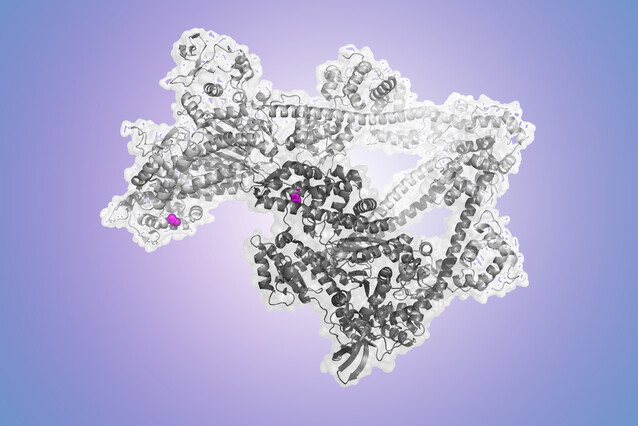ERC Advanced Grant for Tim Clausen to study protein folding in muscle
The three-dimensional structure of proteins shapes their function and influences vital cellular processes. Mutations in certain proteins can lead to misfolding and aggregation, threatening organism health. The ERC now awarded an Advanced Grant to Tim Clausen to further study the mechanisms behind this phenomenon, and the diseases that emerge from them.
Maintaining proper protein structure and function is crucial for cellular health, facilitated by protein quality control mechanisms. These processes, comprising molecular chaperones and degradation pathways, work relentlessly to prevent the accumulation of misfolded proteins. With aging, however, the effectiveness of these mechanisms declines, increasing the risk of protein aggregation and the onset of disorders called proteinopathies.
Tim Clausen, IMP Senior Group Leader, has been awarded an Advanced Grant from the European Research Council (ERC) to investigate how protein misfolding leads to disease by focusing on hypertrophic cardiomyopathies (HCM), a common inherited cardiac condition characterised by thickened heart walls and early death. The prestigious grant will support Clausen’s research over the next five years.
A nematode to understand age-related muscle disorders
With the ERC funding, the Clausen lab will employ structural and functional analyses alongside genome-wide screens to define the networks behind protein quality control in muscle cells “We are very thankful for the recognition of the ERC for our ambitious project” says Tim Clausen. “Our research breaks new ground by developing advanced techniques to study how protein malfunctions lead to muscle diseases, using the nematode C. elegans – a one millimetre long worm – as a powerful model organism.” Specifically, Clausen’s lab aims to uncover the key factors underlying muscle diseases associated with myosin misfolding, the molecular motor that drives muscle contraction.
Tim Clausen’s funding is one of five ERC grants awarded to scientists at the Vienna BioCenter in this round, a remarkable achievement which propels the campus, highlighting the extreme density of scientific innovation and excellence in the life sciences found here.
About the ERC
The European Research Council (ERC), set up by the European Union in 2007, is the premier European funding organisation for excellent frontier research. Every year, it selects and funds the very best, creative researchers of any nationality and age, to run projects based in Europe. The ERC offers four core grant schemes: Starting, Consolidator, Advanced and Synergy Grants. With its additional Proof of Concept grant scheme, the ERC helps grantees to bridge the gap between their pioneering research and early phases of its commercialisation. The overall ERC budget from 2021 to 2027 is more than 16 billion Euro.

About Tim Clausen
Tim Clausen’s lab studies the molecular mechanisms of protein quality control to devise strategies against protein misfolding diseases. Additionally, the group explores differences in protein folding and degradation pathways between bacterial pathogens and hosts, to guide the development of new antibiotics.
Tim Clausen earned his PhD in chemistry from the Technical University Munich in Germany, working in the group of Nobel laureate Robert Huber. He became a postdoctoral researcher with Albrecht Messerschmidt at the Max Planck Institute of Biochemistry where he became a Principal Investigator in 1999. Clausen joined the IMP in Vienna in 2002, assuming his current role as Senior Group Leader in 2009.
About the IMP at the Vienna BioCenter
The Research Institute of Molecular Pathology (IMP) in Vienna is a basic biomedical research institute largely sponsored by Boehringer Ingelheim. With over 200 scientists from 40 countries, the IMP is committed to scientific discovery of fundamental molecular and cellular mechanisms underlying complex biological phenomena. The IMP is part of the Vienna BioCenter, one of Europe’s most dynamic life science hubs with over 3,000 employees from 80 countries in six research institutions, two universities and 40 biotech companies. www.imp.ac.at, www.viennabiocenter.org
